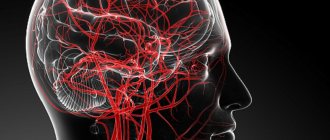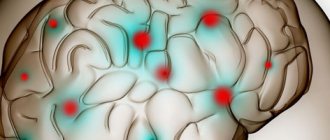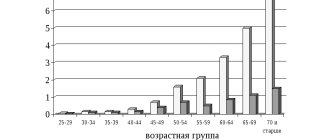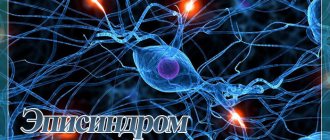Causes of the disease
The causes of epilepsy are divided into structural, genetic, infectious, metabolic, immune and unknown etiological factors. The disease is often provoked by brain damage in the prenatal or perinatal period (hypoxia or birth trauma, low birth weight); congenital abnormalities or genetic conditions in the presence of malformations of the brain that are caused by these factors; head injury; a stroke, as a result of which the brain does not receive enough oxygen; a brain infection such as meningitis; encephalitis; neurocysticercosis; some genetic syndromes; brain tumor.
Our specialists
Yushina Maria Alexandrovna
Head of the Center for Epilepsy and Paroxysmal Conditions.
The doctor is a neurologist. Epileptologist. Ozone therapist. Physiotherapist Experience: 7 years.
Kordonskaya Irina Sergeevna
Pediatric neurologist of the highest category. Epileptologist. Neurophysiologist (EEG diagnostic doctor). Experience: 24 years.
Volkova Svetlana Anatolevna
Head of the Center for Parkinsonism and Extrapyramidal Diseases.
The doctor is a neurologist of the highest category. Epileptologist. Ozone therapist. Physiotherapist. Experience: 26 years.
Derevianko Leonid Sergeevich
Head of the Center for Diagnostics and Treatment of Sleep Disorders.
The doctor is a neurologist of the highest category. Vertebrologist. Somnologist. Epileptologist. Botulinum therapist. Physiotherapist. Experience: 23 years.
Tarasova Svetlana Vitalievna
Expert No. 1 in the treatment of headaches and migraines. Head of the Center for the Treatment of Pain and Multiple Sclerosis.
Somnologist.
Epileptologist. Botulinum therapist. The doctor is a neurologist of the highest category. Physiotherapist. Doctor of Medical Sciences.
Experience: 23 years.Palagin Maxim Anatolievich
The doctor is a neurologist. Somnologist. Epileptologist. Botulinum therapist. Physiotherapist. Experience: 6 years.
Symptoms of epilepsy
The characteristic signs of seizures depend on in which part of the brain the focus of epiactivity is located. Temporary symptoms such as loss of orientation or consciousness, as well as disturbances in movement, sensation (including vision, hearing and taste), mood or other cognitive functions may occur. Signs and symptoms often include temporary confusion, uncontrollable jerking movements of the arms and legs, loss of consciousness or awareness, and mental symptoms such as fear, anxiety, or déjà vu. In most cases, a person with epilepsy has the same type of seizure, so the symptoms are similar from episode to episode. There are about 40 different forms of epilepsy and different types of seizures. Often severe attacks end in deep, short-term sleep. With generalized seizures, control of the anal sphincter and bladder may be lost, resulting in involuntary urination and bowel movements.








